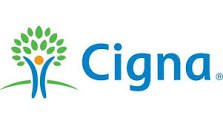Understanding DBT
Dialectical Behavior Therapy (DBT) is a powerful form of therapy that integrates cognitive-behavioral techniques with mindfulness practices. This unique combination equips individuals with the tools to effectively manage distress, navigate emotional challenges, and enhance their overall well-being. DBT therapy is evidence-based and has been widely recognized for its effectiveness in addressing a range of mental health issues, making it a valuable resource for individuals seeking to improve their quality of life.
Expert Insight: “DBT offers individuals a comprehensive approach to managing their emotions and developing essential skills for coping with life’s challenges.”
Dialectical Behavior Therapy in Chandler, AZ
Accessibility of DBT in Chandler, AZ
- Individuals in Chandler, AZ have access to Dialectical Behavior Therapy (DBT) services, offering valuable support for those grappling with mental health challenges. The presence of DBT therapy in the area ensures that individuals have a resource to turn to when seeking effective strategies for managing their emotional well-being.
Effectiveness of DBT in Chandler, AZ
- The effectiveness of Dialectical Behavior Therapy (DBT) in Chandler, AZ has been demonstrated through its positive impact on individuals coping with mental health challenges. This evidence-based therapy has provided tangible results, offering valuable support and resources for those seeking to enhance their overall well-being.
Benefits of DBT
Enhanced Emotional Regulation
- Dialectical Behavior Therapy (DBT) provides individuals with the tools to enhance emotional regulation, enabling them to effectively manage distress and navigate challenging emotions. By learning specific techniques and strategies, individuals can develop a greater sense of control over their emotional responses, leading to improved overall well-being.
Improved Relationships
- A significant benefit of DBT is its capacity to foster improved relationships. Through the development of effective communication and interpersonal skills, individuals undergoing DBT therapy can experience positive transformations in their interactions with others. This can lead to healthier, more fulfilling relationships and a greater sense of connection with those around them.
Expert Insight: “DBT not only equips individuals with the skills to manage their own emotions but also empowers them to engage in healthier, more meaningful relationships with others.”
Mindfulness in DBT
Incorporating Mindfulness Practices
In Dialectical Behavior Therapy (DBT), mindfulness practices are seamlessly integrated to help individuals become more aware of their thoughts and emotions. By incorporating meditation and mindfulness exercises, DBT aims to cultivate a heightened sense of self-awareness and present-moment focus. These practices encourage individuals to observe their thoughts and feelings without judgment, fostering a deeper understanding of their internal experiences.
Benefits of Mindfulness
The incorporation of mindfulness in DBT offers a myriad of benefits for individuals. It can lead to reduced stress levels, improved ability to focus on the present moment, and an overall greater sense of well-being. By developing the capacity to be fully present in each moment, individuals undergoing DBT therapy can experience a profound shift in their emotional regulation and overall mental wellness.
Emotional Regulation in DBT
Understanding Emotional Dysregulation
In the context of Dialectical Behavior Therapy (DBT), emotional dysregulation refers to the difficulty individuals face in managing intense emotions in a healthy manner. This can lead to overwhelming feelings, impulsive reactions, and challenges in effectively navigating daily experiences. Emotional dysregulation can significantly impact an individual’s overall well-being and relationships, making it a crucial aspect to address in DBT therapy.
Expert Insight: “Emotional dysregulation can manifest as intense mood swings, impulsivity, and difficulties in coping with stress. DBT provides valuable tools for individuals to manage these challenges effectively.”
DBT Techniques for Emotional Regulation
Dialectical Behavior Therapy (DBT) offers specific techniques designed to assist individuals in regulating their emotions and coping with distress. These techniques include mindfulness practices, emotion regulation exercises, and strategies for identifying and shifting negative thought patterns. By learning and implementing these techniques, individuals can develop a greater sense of control over their emotional responses, leading to improved overall well-being.
Application of DBT in Mental Health
DBT for Depression and Anxiety
Dialectical Behavior Therapy (DBT) has proven to be a valuable resource in the treatment of depression and anxiety. By incorporating a combination of cognitive-behavioral techniques and mindfulness practices, DBT equips individuals with effective coping strategies to manage the challenges associated with these mental health conditions. Through DBT therapy applications, individuals can develop essential skills for regulating their emotions, navigating distressing thoughts, and fostering a greater sense of overall well-being.
The use of DBT in mental health treatment for depression and anxiety focuses on empowering individuals to recognize and modify negative thought patterns, regulate intense emotions, and cultivate a deeper sense of self-awareness. This approach enables individuals to develop practical tools for managing symptoms related to depression and anxiety, ultimately leading to improved mental wellness and an enhanced quality of life.
DBT for Substance Use Disorders
In the realm of mental health treatment, Dialectical Behavior Therapy (DBT) has shown promise in addressing substance use disorders. By integrating mindfulness practices and specific coping strategies, DBT therapy offers individuals grappling with substance use challenges the opportunity to manage cravings effectively while developing healthier behaviors. The application of DBT in addressing substance use disorders emphasizes the importance of emotional regulation, distress tolerance, and interpersonal effectiveness as key components in supporting individuals on their journey towards recovery.
Through its evidence-based approaches, DBT provides individuals with practical skills for managing triggers, navigating challenging emotions without resorting to substance use, and fostering positive behavior change. These applications of DBT in mental health underscore its transformative potential in supporting individuals as they work towards overcoming substance use challenges.
Empowering Change with DBT
Building Self-Awareness
In the realm of mental health, Dialectical Behavior Therapy (DBT) serves as a catalyst for building self-awareness. Through the integration of cognitive-behavioral techniques and mindfulness practices, DBT empowers individuals to gain a deeper understanding of themselves, their emotions, and the underlying factors that influence their thoughts and behaviors. By fostering self-awareness, individuals can develop insights into their patterns of thinking and emotional responses, leading to a greater sense of personal growth and empowerment.
Expert Insight: “DBT provides individuals with the tools to explore their inner experiences in a non-judgmental manner, leading to profound insights and self-discovery.”
Creating Positive Behavior Change
One of the transformative aspects of Dialectical Behavior Therapy (DBT) is its capacity to facilitate positive behavior change. Through targeted interventions and skill-building exercises, DBT equips individuals with practical strategies for modifying maladaptive behaviors and cultivating healthier alternatives. This process empowers individuals to make conscious choices that align with their well-being, ultimately leading to a more fulfilling and balanced life marked by personal growth and resilience.
By embracing DBT’s approach to behavior change, individuals can embark on a journey towards meaningful transformation, embracing new ways of interacting with themselves and others while fostering positive habits that support their mental wellness.
Conclusion
In conclusion, Dialectical Behavior Therapy (DBT) stands as a transformative approach to mental health, equipping individuals with the necessary tools to effectively manage distress, enhance emotional regulation, and improve overall well-being. By integrating cognitive-behavioral techniques with mindfulness practices, DBT therapy offers a comprehensive framework for addressing a wide range of mental health challenges. Through its accessibility and demonstrated effectiveness in locations such as Chandler, AZ, DBT has emerged as a valuable resource for individuals seeking to cultivate positive behavior change and build self-awareness.
Expert Insight: “DBT provides individuals with practical strategies for navigating emotional challenges and fostering healthier relationships, ultimately leading to a more fulfilling life.”
CALL US DIRECTLY
480-252-5152
3377 S Price Road, Suite 103
Chandler, AZ 85248
Appointment@sfsaz.care











